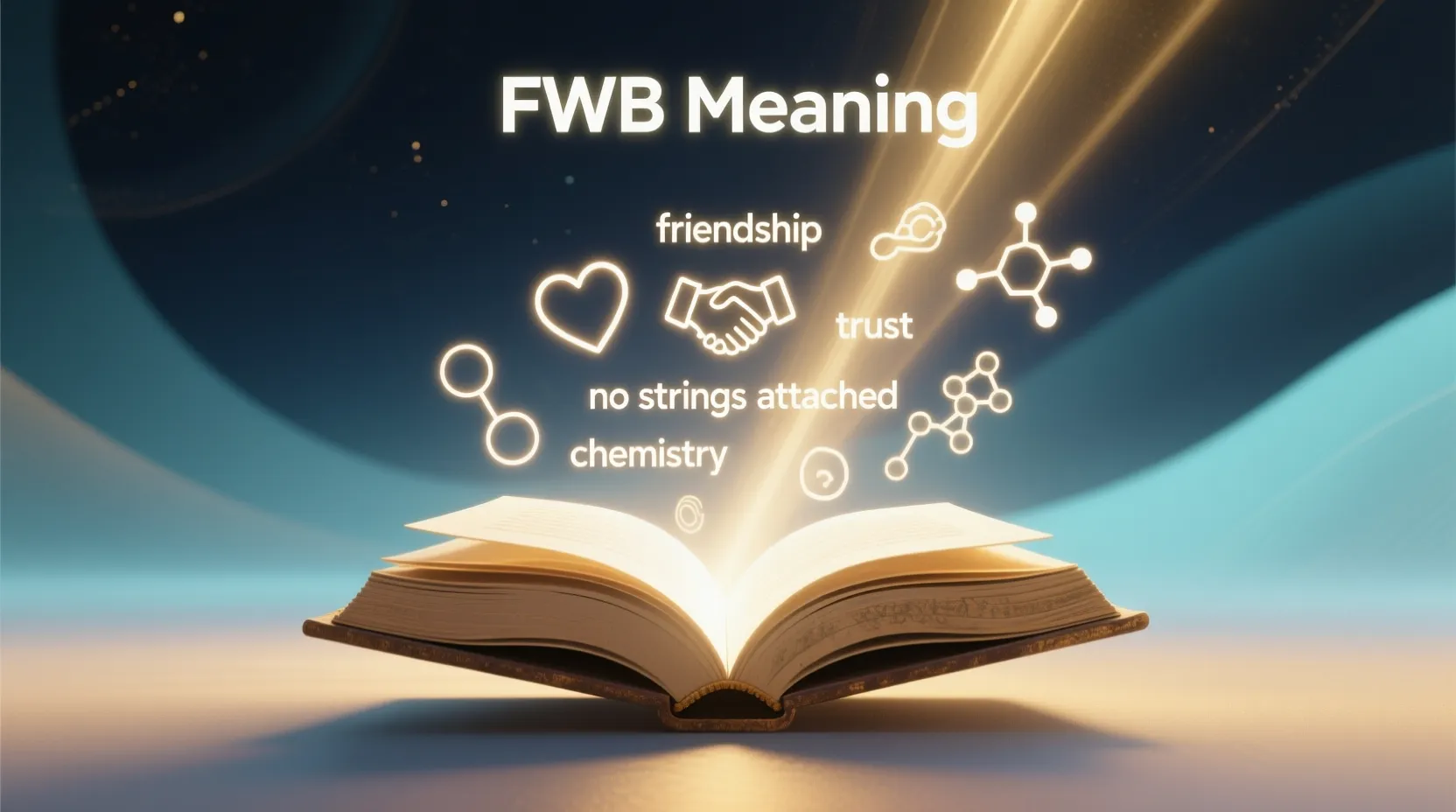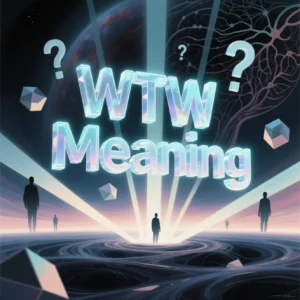When someone texts you “FWB?” do you know what they mean? For many, the abbreviation FWB stands for Friends With Benefits, a type of casual relationship that mixes friendship and sexual activity without the expectations of a long-term relationship. But the meaning shifts depending on context—text messages, slang, dating apps, or even sexual health discussions.
This guide explores FWB meaning in depth: what it is, how it’s used, when it works, and when it doesn’t. Along the way, you’ll discover real-life insights, safe practices, relationship tips, and mental health resources to help you navigate this modern arrangement.
What Does FWB Mean?
At its core, FWB means Friends With Benefits. In simple terms, it’s when two people are friends but also engage in intimacy or hooking up without officially becoming a couple.
Unlike dating relationships that usually involve commitment, love, and long-term goals, an FWB relationship is built on the idea of no strings attached.
Key Differences Between FWB and Dating
| Aspect | Friends With Benefits (FWB) | Dating Relationship |
|---|---|---|
| Commitment | Typically none; casual | Usually some level of commitment |
| Intimacy | Primarily sexual activity | Emotional + sexual |
| Expectations | Limited; agreed boundaries | Higher; includes future planning |
| Romantic feelings | Ideally avoided | Often central |
| Duration | Short-term or situational | Aimed at long-term relationship |
Many people choose FWB when they want sexual activity without the added layers of commitment. However, real life is rarely so simple. Romantic feelings often develop, and when they do, the FWB dynamic can shift—sometimes into a relationship, sometimes into conflict.
FWB Meaning in Text and Chat
Online and mobile communication have cemented FWB into digital slang. On platforms like Snapchat, WhatsApp, or dating apps, “FWB?” often means:
- “Are you interested in a casual hookup?”
- “Do you want something sexual but not serious?”
For example:
Text Example:
Alex: Hey, what are you looking for on here?
Jordan: Honestly, just FWB. No strings attached.
Here, FWB meaning in text is clear: the person is open to intimacy but not a dating relationship.
FWB Meaning in Slang and Social Circles
In slang, FWB is shorthand for “hooking up with a trusted friend.” People use it when discussing casual relationships or when describing a dynamic that doesn’t quite fit dating or one-night stands (ONS).
Common variations include:
- NSA FWB = No Strings Attached Friends With Benefits
- ONS vs FWB = one-time hookup vs ongoing casual intimacy
The term gained popularity in the 2000s with movies like No Strings Attached and Friends With Benefits, which brought the concept into mainstream culture.
FWB Meaning in Dating and Relationships
How FWB Works in Dating
In the dating world, FWB is often a commitment-free relationship. Both partners agree to mix friendship and sexual intimacy without labeling it.
Pros of FWB
- Freedom: No obligations or long-term relationship expectations.
- Comfort: Physical intimacy with a trusted friend rather than a stranger.
- Exploring sexuality: Can be a way to understand your own desires.
Cons of FWB
- Romantic feelings creep in: One partner may develop deeper emotions.
- Jealousy: Seeing your FWB date others can cause tension.
- Blurred boundaries: Without clear communication, confusion arises.
FWB Meaning in Medical or Support Contexts
Sometimes, FWB is used in a completely different way. In certain medical, mental health, or youth support contexts, FWB can stand for Foundations for Well-Being or appear in programs by organizations like Kids Help Phone (KHP) in Canada.
For example, First Nations, Inuit and Métis youth, Black youth, and Deaf youth might see resources labeled “FWB” when accessing support resources for mental health, safety, coping, or crisis support.
This highlights why context is everything when interpreting FWB.
FWB on Specific Platforms
Snapchat
“FWB” on Snapchat usually means someone is looking for a hookup or casual relationship. It’s shorthand in bios, usernames, or private chats.
Grindr
On Grindr, FWB typically refers to casual intimacy within LGBTQ+ dating. It can mean an arrangement where two men agree to a no strings attached friendship with sexual activity.
Related Terms to FWB
Here’s how FWB compares with other dating and slang terms:
- ONS (One Night Stand) – One-time sexual activity, no ongoing friendship.
- NSA (No Strings Attached) – Similar to FWB, but doesn’t always imply friendship.
- Dating vs FWB – Dating involves emotional bonding; FWB is usually more physical.
How to Know If FWB Is Right for You
Not everyone is comfortable with an FWB relationship. Consider:
- Do you want love and commitment, or are you okay with casual intimacy?
- Can you manage emotions without getting attached?
- Are you able to discuss boundaries openly?
Quick Self-Assessment
If you answer “yes” to most of these, FWB might suit you:
- You’re not seeking a long-term relationship.
- You value friendship but don’t want commitment.
- You’re confident about your emotional health.
Real-Life Insights and Statistics
Studies on casual relationships show interesting trends:
- A 2022 study found 60% of college students reported having at least one FWB arrangement.
- Among young adults, about 40% of FWBs eventually transition into a dating relationship.
- Emotional outcomes vary: some report improved well-being, while others struggle with anxiety and depression after ending an FWB.
Communication and Boundaries in FWB
Clear communication is the foundation of a healthy FWB. Without it, misunderstandings are inevitable.
Conversations to Have Before Starting
- Boundaries: What’s allowed, what’s not.
- Expectations: Can you date others? Is this exclusive?
- Trust: Respect each other’s feelings.
- Safety: Practice safe sex and consent every time.
Sexual Health in FWB Relationships
Any sexual activity comes with responsibilities.
- Safe sex practices protect against sexually transmitted infections (STIs) and unplanned pregnancy.
- Birth control and condoms are essential tools.
- Regular check-ups support both partners’ sexual health.
Quote to remember:
FWB should never come at the cost of your health or well-being. Consent and safety come first.
Alternatives to FWB
If FWB doesn’t feel right, there are other paths:
- Casual dating – Going on dates without long-term plans.
- One-night stands – Purely physical, one-time encounters.
- Committed relationships – Emotional and long-term.
Choosing depends on your values, emotional health, and expectations.
FAQs on FWB Meaning
What does FWB mean on Snapchat?
It usually signals interest in casual hookups.
Can FWB relationships turn serious?
Yes—studies show up to 40% do. But it depends on both partners’ feelings.
What does NSA FWB mean?
It means a casual, no strings attached FWB.
Is FWB the same as dating?
No. Dating involves emotional bonding; FWB prioritizes intimacy with limited commitment.
Mental Health and FWB
FWB can sometimes affect emotional health. Feelings of anxiety, depression, or jealousy may arise. If this happens:
- Talk to a trusted friend or counsellor.
- Use coping strategies like journaling, exercise, or self-care.
- Seek crisis support if emotions feel overwhelming.
Organizations like Kids Help Phone (KHP) in Canada provide confidential support resources for youth—including First Nations, Inuit and Métis youth and Black youth.
Conclusion
The meaning of FWB goes beyond just “Friends With Benefits.” In text, it signals casual hookups. In slang, it describes a no strings attached dynamic. In dating, it’s a gray area between friendship and relationship. And in health or youth contexts, it may even stand for support resources.
If you’re considering an FWB relationship, remember: communication, consent, trust, and sexual health matter most. It can work beautifully for some, while others may realize they need love, commitment, and a long-term relationship.
Whatever path you choose—casual relationships, dating, or friendship—prioritize your well-being and make choices that truly fit your needs.



